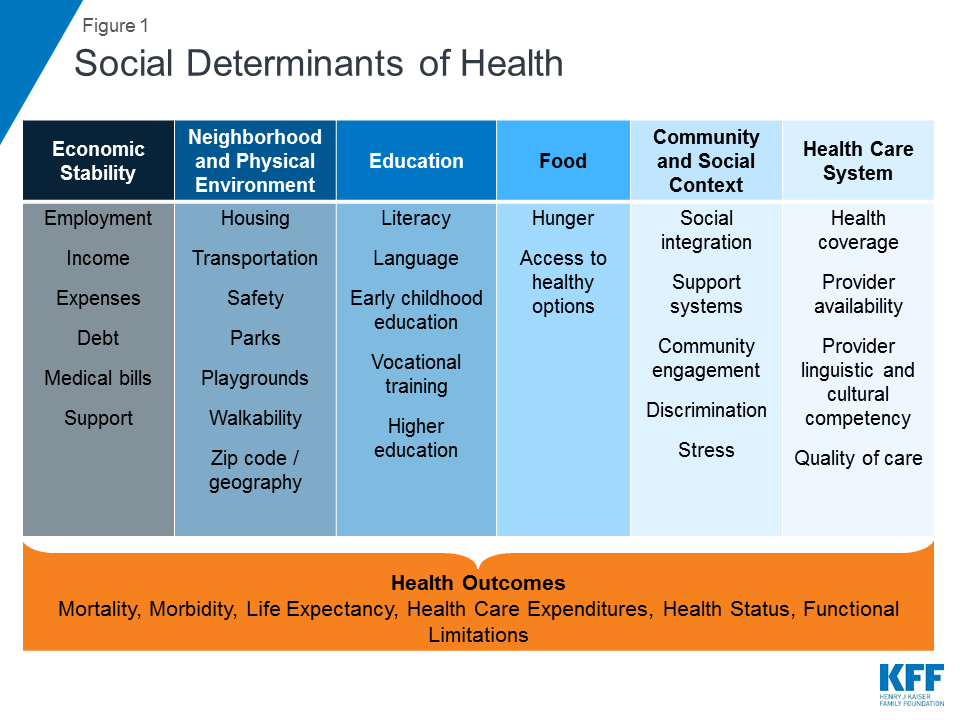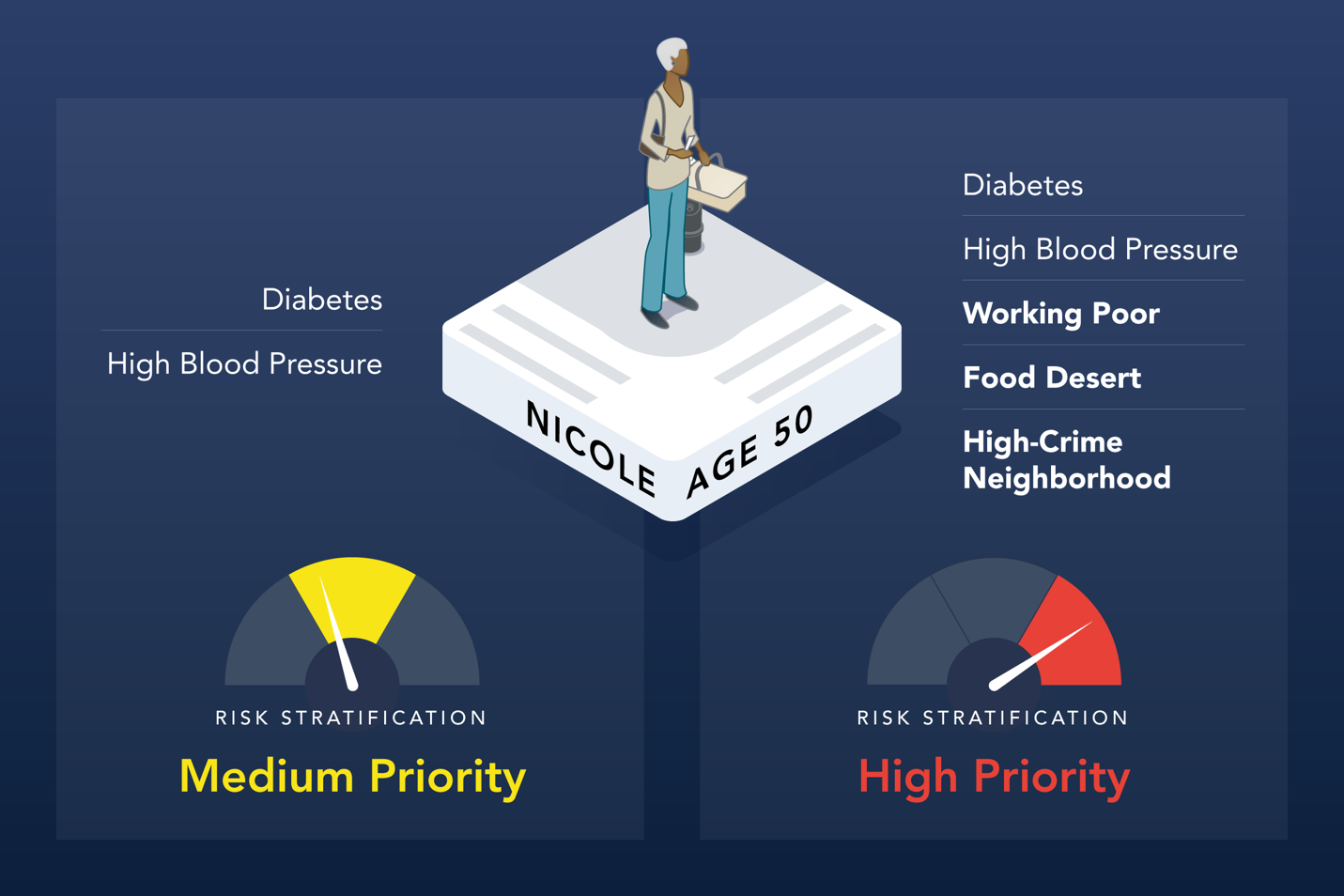When would a 50-year-old woman with diabetes most likely have a poor health outcome?
When she lives in an area (urban, suburban or rural) that lacks access to healthy food, a safe place to exercise, or convenient access to medical care.

What do these things have to do with diabetes? A lot, as research has shown that these and other factors, known as the social determinants of health, play a significant role in the health (or sickness) of people and communities.
What are Social Determinants of Health?
According to the World Health Organization (WHO), social determinants of health are “the conditions in which people are born, grow, work, live and age, and the wider set of forces and systems shaping the conditions of daily life. These forces and systems include economic policies and systems, development agendas, social norms, social policies and political systems.”

As indicated by Dr. Steven Schroeder and others, social and economic factors are far stronger determinants of health outcomes than medical care. The contribution of social, economic and environmental circumstances is so strong in determining health that the WHO states “blaming individuals for having poor health or crediting them for good health is inappropriate. Individuals are unlikely to be able to directly control many of the determinants of health."
With this understanding that the context of people’s lives is what most significantly determines their health, we must take a comprehensive and systematic approach to address social determinants to improve individual and community health.
Addressing Social Determinants of Health to achieve the Triple Aim
As we continue in pursuit of healthcare's Triple Aim - better care, smarter spending and healthier people - the social determinants of health take on even greater importance. As healthcare organizations seek innovative, holistic solutions to cost-effectively deliver care and provide better health outcomes, they must identify and address health literacy, financial instability, food insecurity and other social circumstances to meet the demands of our U.S. value-based care transformation.
The example below illustrates how social and economic factors can significantly impact a patient's needs and alter what interventions are required in her care.

Although the social determinants are clear in this illustration, they may not be as apparent in practice and steps must be taken to ensure clinicians and healthcare organizations assess patients for these factors as part of routine care. Even more important than identification, however, clinicians must be supported with appropriate resources to effectively adjust the care plan to address socioeconomic factors which may limit or prevent Nicole from achieving her health goals.
To this end, stakeholders across the country are evaluating new and innovative approaches to identify and address the health-related social and economic needs of patients and communities. Some examples include:
• Early childhood education & development programs
• Safe access to green space for physical activity
• Healthy grocery options
• Nutrition services
• Transportation
• Workforce development
• Medical neighborhoods
A holistic approach by doctors, hospitals and communities on the social determinants of health is necessary to elevate health and quality-of-life.
Editor's Note: This article originally appeared on Allscripts' website.

